What do four-leaf clovers, a rabbit’s foot, and horseshoes have in common? They’re all good luck charms!
Finding a lucky clover in a meadow takes more than dumb luck; you need patience too. They’re as valued as they are rare, and finding one is always thrilling.
The superstitions surrounding four-leaf clovers can be traced back to the pagan Celtic priests who believed it could be used to ward off bad luck.
According to Christian tradition, it was Eve that plucked the four-leaf clover on her way out of the Garden of Eden as a keepsake.
Want to learn more about the luckiest leaves of all? Who knows – your luck may just turn around after reading all these fortunate facts!
There are plenty of copycat four-leaf clovers.
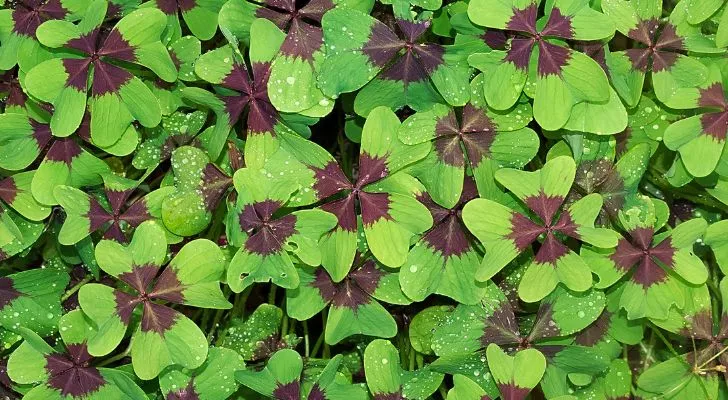
Trifolium repens is the scientific name for genuine lucky clovers.
They usually have three leaves but can sometimes mutate and grow additional leaves.
Similar-looking plants, such as water clover, pepperwort, and oxalis, have four leaves and could pass off as lucky clovers, but they’re not the same.
Lucky clovers can have more than four leaves.

Some clovers have five, six, or more leaves. Although the more leaves they have, the harder they are to find.
In 2009, Shigeo Obara found a clover with 56 leaves, the most ever recorded.
Each lucky clover leaf has a deeper meaning.
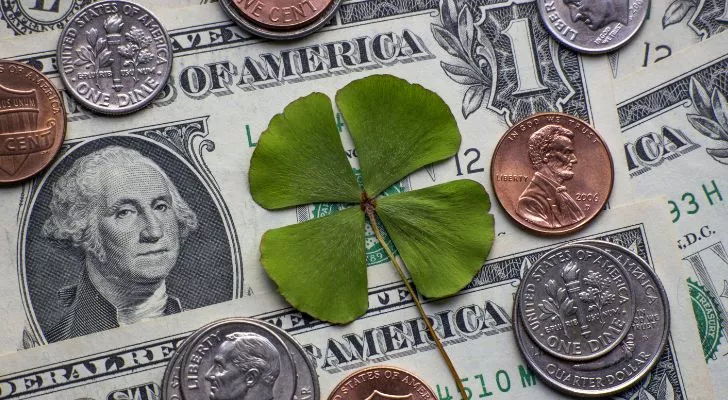
The four-leaf clover had significant meaning for pagan Celts, with each leaf holding a blessing for you when you find it.
The first leaf symbolizes fame, the second is for wealth, the third is love, and the fourth brings health.
Other Irish legends say that finding a clover with five leaves brings money, six brings fame, and seven means you’ll have a long life!
The meaning of four-leaf clovers has changed over time.
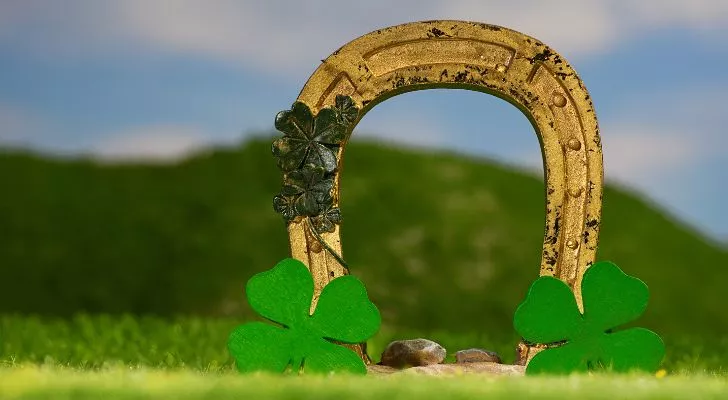
As Christianity became the more dominant religion in the west, four-leaf clovers came to represent the Christian virtues: hope, faith, charity, and luck.
Some Christian traditions also use the four-leaf clover to represent the Father, Son, Holy Spirit, and Grace of God.
The world’s largest collection of four-leaf clovers exceeds 100,000.
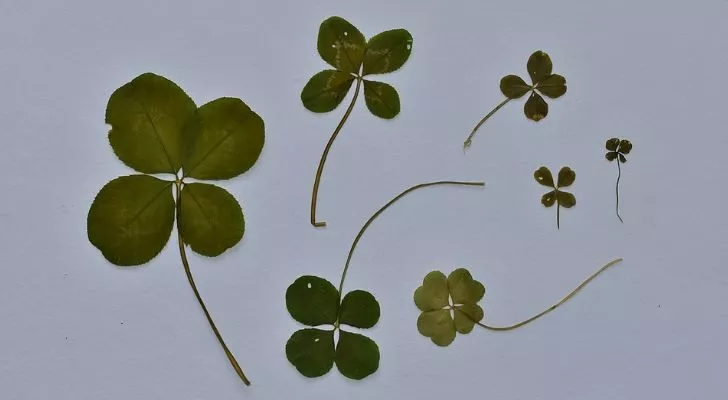
The Guinness World Record holder for the largest four-leaf clover collection is Gabriella Gerhardt, who set a new record of 118,791 clovers on February 25, 2023.
Gabriella is apparently pretty lucky, as she also has the Guinness World Record for the most four-leaf clovers found in one hour!
Four-leaf clovers are super rare.
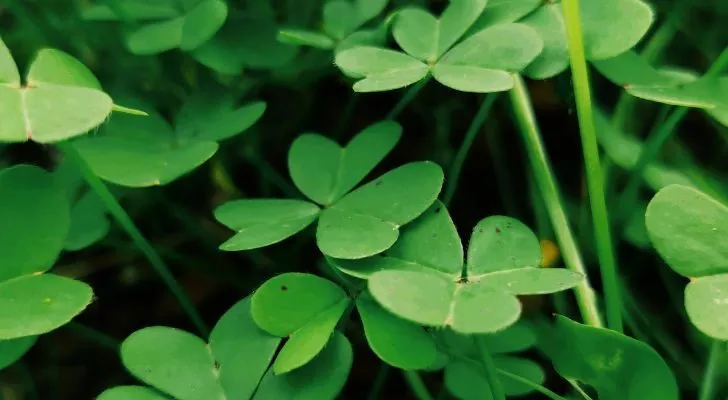
It’s popularly believed your chance of picking a four-leaf clover is about 1 in 10,000. However, a study by Swiss researchers found that the odds are more like 1 in 5,000, which is still rare.
The more leaves a clover has, the lower your odds of finding one.
Four-leaf clovers are so rare because every cell in a clover has four chromosome copies. Therefore, for the four-leaf mutation to occur, each chromosome copy must contain the four-leaf genetic trait, as the gene is recessive.
Abraham Lincoln carried a four-leaf clover everywhere.

Honest Abe took his good luck charm everywhere he went.
However, he reportedly left his four-leaf clover at home the night John Wilkes Booth assassinated him.
A four-leaf clover saved Napoleon Bonaparte’s life in battle.

Legend says Napoleon Bonaparte saw a four-leaf clover in the middle of combat and bent down to pick it up.
He was lucky he did, as he dodged a bullet meant for him.
If you find one four-leaf clover, you will likely see more nearby.
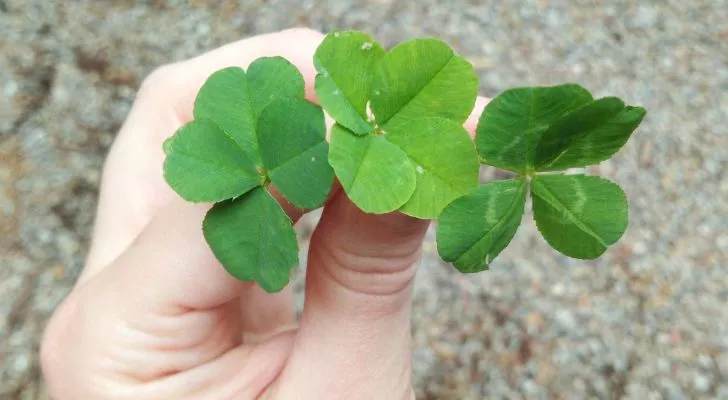
If you’re trying to increase your odds of picking four-leaf clovers, stick to where you found the first one.
This is because other branches of the same plant may also have the gene that produces the fourth leaf.
You have a better chance of finding four-leaf clovers in warmer months.

Scientists have found that lucky clovers are more likely to produce an extra leaf when the weather warms up.
But not when it gets too hot because clovers generally thrive in moist, cool environments.
The four-leaf clover isn’t the symbol of Ireland.
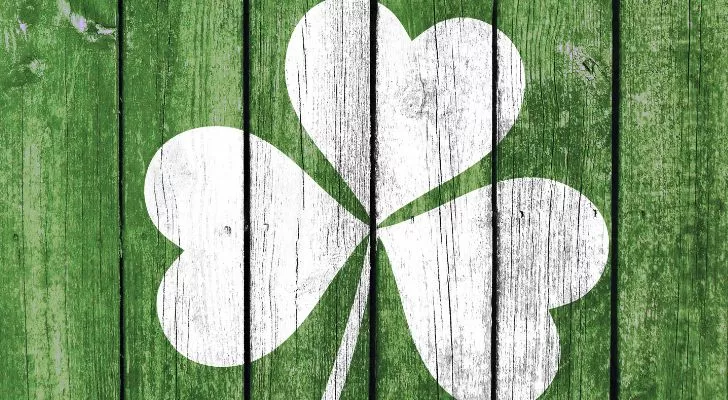
You wouldn’t be the first to think so, as the New York Times made the same error in 2017. However, they quickly corrected their mistake the next day. The correct symbol for Ireland is the shamrock.
They’re technically the same plant, but the shamrock has only three leaves, while a four-leaf clover has four.
Saint Patrick used shamrock leaves to represent the Father, Son, and Holy Spirit.
Do you believe four-leaf clovers are lucky? If you spot one in the countryside, don’t be shy to pick it up. Everyone needs a little extra love and luck.
Hunting four-leaf clovers can be exciting, so why not head out with your friends and try your luck at finding some?
You might not find any, but that’s okay – you’ll still get to show off your new-found clover knowledge!


















